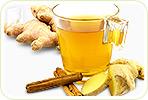Chronic tension headaches are some of the most common complaints in adults, affecting an estimated 45 million Americans. Headaches occur when blood vessels in the scalp constantly dilate and constrict. There are different types of headaches. Tension headaches are the mild, everyday headaches that are characterized by dull, aching pain. Headaches can also come in the form of severe migraines, which are described as intense pain that starts on one side of the head and can be accompanied by blurred vision and nausea. Fortunately, there are several ways to avoid daily headaches.
Lifestyle Changes
Making adjustments to habits can decrease headaches and improve well-being.
Drink water
Drinking plenty of water throughout the day can help increase energy and reduce headaches. Urine should be pale yellow in color - anything darker than that indicates dehydration. Try to keep a water bottle around at all times as a reminder to drink more.
Exercise
Staying active and getting regular exercise offers a variety of health benefits, including increased energy, improved mood, and reduced stress. Getting at least 30 minutes of aerobic activity every day is the general recommendation. Taking a brisk walk outside is an easy alternative to the gym, and yoga is another excellent low-intensity work out that significantly reduces stress and prevents headaches.
Eat healthy
Eating balanced meals and healthy snacks every three to four hours is recommended for peak performance and energy. Eating healthy can also help avoid daily headaches. Studies have shown that eating smaller, more frequent meals is better than big, heavy meals three times a day.
Sleep
Getting adequate amounts of sleep every night is vital to feeling your best throughout the day and getting relief from headaches. The average adult needs seven to eight hours of sleep every night. Taking a warm bath or reading before bed can help you fall asleep. Keep your bedroom dark and cool, and turn off all screens.
Herbal Remedies
Herbal medicines are considered a natural approach to managing headaches. Some traditional herbs for treating headaches include:
Feverfew
Feverfew is a popular herb for treating headaches because it is anti-inflammatory and helps reduce the frequency of headaches by preventing the blood vessels from constricting.
Valerian
Valerian has been used for centuries as a natural treatment for insomnia, stress, and anxiety because of its sedative characteristics. A few drops of valerian tincture are ideal for treating stress-related headaches.
Lemon balm
Lemon balm is another helpful herbal remedy for headaches because it possesses calming and sedative qualities. Lemon balm is part of the mint family, and is typically taken in combination with other herbs when treating headaches.
Lavender
Lavender is a soothing and sedative herb that can help relieve tension. Adding lavender oil to a hot bath or to a cold compress for the forehead is known to help relieve headaches and stress.
Daily headaches are a bothersome symptom that affects millions of Americans. Alcohol, caffeine, and reformed meats are also major headache triggers that should be avoided. It is important to maintain a healthy and active lifestyle to avoid daily headaches. It is also helpful to try a combination of natural remedies when dealing with headaches to find out which method works best for you.
Sources
- Chevallier, A. (2000). Encyclopedia of Herbal Medicine. London: Dorling Kindersley Adult.
- National Health Service UK. (2014). Migraines - Causes. Retrieved November 5, 2014, from http://www.nhs.uk/conditions/migraine/pages/causes.aspx
- National Health Service UK. (2013). Tension-type headaches. Retrieved November 5, 2014, from http://www.nhs.uk/Conditions/headaches-tension-type/Pages/Introduction.aspx
- Office on Women's Health. (2012). Migraine fact sheet. Retrieved November 5, 2014, from http://www.womenshealth.gov/publications/our-publications/fact-sheet/migraine.html#n




